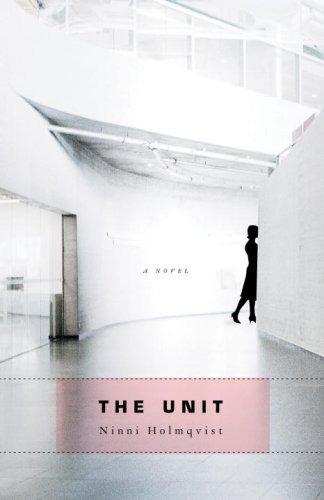
The Unit
A Novel
کتاب های مرتبط
- اطلاعات
- نقد و بررسی
- دیدگاه کاربران
نقد و بررسی

April 13, 2009
Swedish author Holmqvist's unconvincing debut, part of a wave of dystopias hitting this summer, is set in a near future where men and women deemed “dispensable”—those unattached, childless, employed in nonessential professions—are checked into reserve bank units for biological material and become organ donors and subjects of pharmaceutical and psychological experiments. When Dorrit Weger, who has lived her adult life isolated and on the brink of poverty, is admitted to the unit, she finds, to her surprise, comfort, friendship and love. Though the residents are under constant surveillance, their accommodations are luxurious, and in their shared plight they develop an intimacy rarely enjoyed in the outside world. But an unlikely development forces Dorrit to confront unexpected choices. Unfortunately, Holmqvist fails to fully sell the future she posits, and Dorrit's underdeveloped voice doesn't do much to convey the direness of her situation. Holmqvist's exploration of female desire, human need and the purpose of life has its moments, but the novel suffers in comparison with similar novels such as The Handmaid's Tale
and Never Let Me Go
.

May 1, 2009
Pricey shops that require no money. Gardens that trump Monet's. Creature comforts galore. But Swedish ace Holmqvist's English-language debut soon discloses a catch.
The shelf-life for inhabitants of this paradise is about six years. This is the Second Reserve Bank Unit, into which the State herds women 50 and up, and men 60 and over, to use for biological material. They're fattened like calves, but there's civic-duty payback: mandatory organ donation, culminating in the final"gift" of their lungs and hearts. Big Brother doesn't take every oldster, just those termed"dispensables": the cash-strapped, underachieving or, worst of all, childless. Dorrit Weger, freelance writer, dog-lover and free sprit, is initially mesmerized by her new surroundings. She feels a sense of community, a closeness never offered by Nils, the inadequate lover who would never leave his wife. And she takes pride in being needed when she's enlisted in one of the Unit's many medical experiments. It's a benign investigation into the effects of exercise, but in the cafeteria and on the lush grounds Dorrit soon notices other campers sleepwalking like zombies or displaying weirdly blotched skin. As her roommates are ushered off one by one to their final donations, she panics into the arms of Johannes, a fellow Unit resident who actually manages to impregnate her. Dazzled by upcoming motherhood, Dorrit is certain her bulging belly will gain her freedom. Proven at last productive, she's bound to be rewarded by the State….isn't she? In her first novel, short-story writer Holmqvist echoes political-science treatises like Hobbes' Leviathan and Rousseau's The Social Contract (gone decidedly mad here), as well as the usual dystopian novels from Brave New World to 1984.
Orwellian horrors in a Xanadu on Xanax—creepily profound and most provocative.
(COPYRIGHT (2009) KIRKUS REVIEWS/NIELSEN BUSINESS MEDIA, INC. ALL RIGHTS RESERVED.)

Starred review from June 1, 2009
Holmqvists chilling, stunning debut novel is set at the Second Reserve Bank for Biological Material, where men and women of a certain age without families or jobs deemed valuable by the government are sent to participate in experiments and donate organs to more essential members of society. Writer Dorrit Weger, who lives in a small house with her beloved dog, Jock, has just turned 50and has been marked as dispensable. When she arrives at the Unit, she is surprised to find it a pleasant, clean, lovely place, complete with a restaurant, a gym, and a garden resembling a Monet painting. Dorrit gradually becomes resigned to her fate and participates in several harmless experiments whileenjoying the Unit communityand her close friendships with several other residents, many of whom are also artists and writers. Dorrit falls in love with a fellow writer named Johannes, and their affair has unexpected consequences, complicating the resignation with which Dorrit has grown to accept her fate. Holmqvists fluid, mesmerizing novel offersunnerving commentary on the way society devalues artistic creation while elevating procreation, and speculation on what it would be like if that was taken to an extreme. For Orwell and Huxley fans.(Reprinted with permission of Booklist, copyright 2009, American Library Association.)

























دیدگاه کاربران